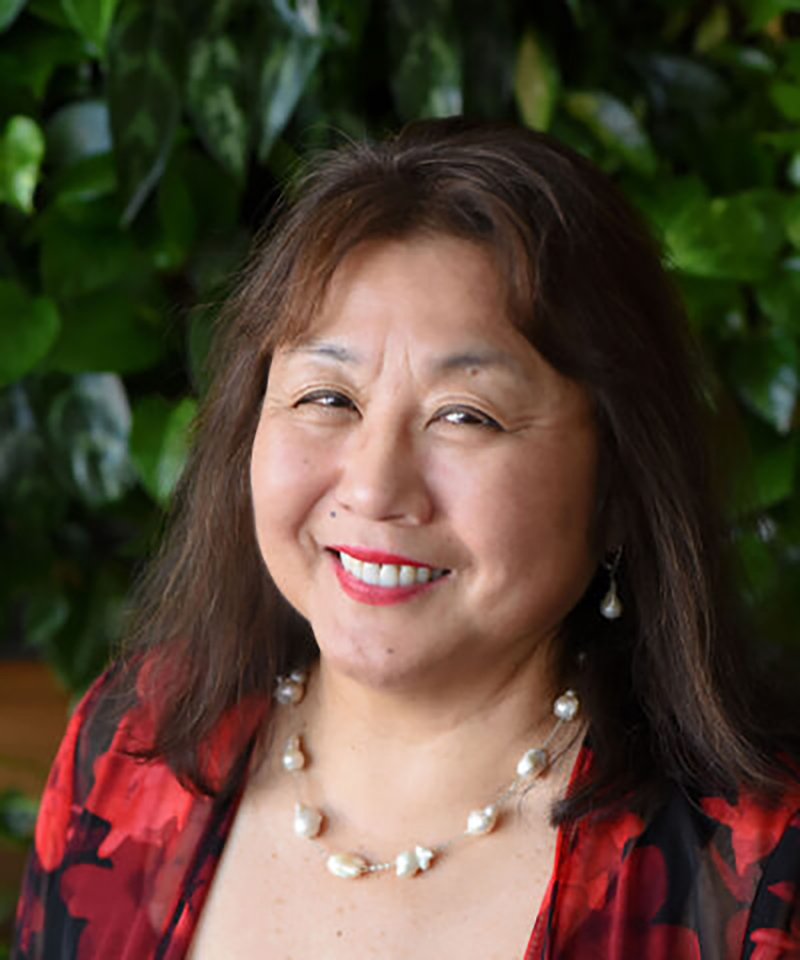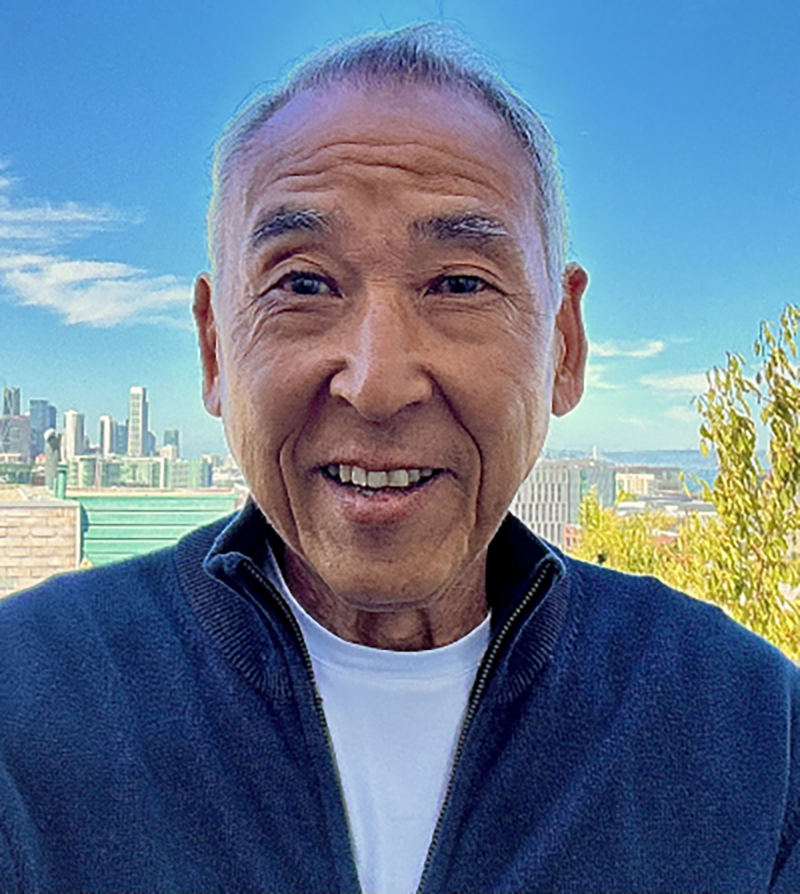By Jason Cruz
NORTHWEST ASIAN WEEKLY

Peggy Nagae
“The case of my lifetime.”
Attorney Peggy Nagae described the reason why she and many other attorneys volunteered countless hours to right a wrong. For her, it was the case of Minoryu Yasui. It will be one of the cases discussed at a Civil Rights Symposium on Bainbridge Island this Sunday, Oct. 5.
“I read Korematsu in Con law (Constitutional law) class,” explained Nagae of the reasons she became involved in the Yasui case. “When I read it (Korematsu), because all of my family were incarcerated, I thought if I could do something to write about this case, it would [be] worthwhile.” Nagae’s personal interest was due to her family being incarcerated and after the war, her family had to rebuild their lives with nothing.
Yasui was an American lawyer and the first Japanese American member of the Oregon State Bar Association. He fought laws that targeted Japanese living in the United States. In 1942, Yasui purposefully broke curfew laws targeting Japanese to bring a case against the United States, citing that they were unconstitutional. His case challenging his conviction of violating curfew laws was affirmed by the U.S. Supreme Court. The Yasui opinion was decided along with the Hirabayashi v. United States case. A year later, the Supreme Court issued its opinion in Korematsu v. United States. All three cases supported Congress and the military authorities in establishing the curfews due to the uncertainty of Japanese loyalty, particularly after Pearl Harbor.
A fourth case involved a Japanese American woman who argued that her incarceration during World War II was unlawful. In December 1944, the U.S. Supreme Court ruled in her favor, stating that the government could not detain a “concededly loyal” U.S. citizen without sufficient cause. Ironically, the same Court issued the Korematsu decision on the same day. The two cases were hard to reconcile considering Endo ruled that a person could not be imprisoned if the government was unable to prove disloyalty while Korematsu (Yasui and Hirabayashi) stood for punishing citizens criminally for refusing to be illegally imprisoned.
In the 1980s, Nagae became a part of a group of attorneys who filed a special legal petition called a writ of coram nobis, seeking to overturn Yasui’s conviction. They worked in conjunction with other attorneys working for free to overturn Hirabayashi and Korematsu. A writ of coram nobis is a legal process that allows someone to challenge a final court decision if they believe it was based on serious errors that weren’t clear in the original court records but could have changed the verdict.
Nagae believed in the importance of filing these cases.
“To show that 120,000 [Japanese Americans] were unlawfully incarcerated … when you do that to 120,000, 70% of whom were U.S. citizens, arrested, detained, imprisoned, without due process. Hopefully, that is a constitutional crisis that people see. So it’s really an American issue. It’s a constitutional issue, and it also impacted 120,000 people.”
“So why would you bring it (writ of coram nobis)?” Nagae explained, “[W]e’re lawyers who found evidence that said that the courts were in error and that the government misled the courts and tampered with material evidence.” Documentations discovered in the National Archives revealed a government coverup. Civil rights activist and lawyer Peter Irons helped reopen the three cases as he found the first documents in the National Archives.
The Alien Enemies Act gave the president the right to arrest, relocate, or deport any male over the age of 14 who was from a foreign enemy country. The purpose was due to “military necessity or national security.” The three cases show that the U.S. government did not find the incarceration of Japanese Americans in incarceration camps were based on military necessity but on race and ancestry. However, information pulled from the National Archives showed that “their (Japanese Americans) incarceration was not based on military necessity, but based on race and ancestry.” Nagae added, “That material was withheld and not disclosed to the U.S. Supreme Court when the Court made the decision because the president says there’s a military necessity, and when the military says that there’s a necessity, then the courts step aside.”
Specifically, Nagae references a report filed by General John DeWitt to the War Department. The report, “Japanese Evacuation from the West Coast, 1942,” provided justification for the mass removal and incarceration of Japanese Americans during World War II. Nagae explained that the War Department did not like his answers so they actually rewrote it to align with its justification that the incarceration of Japanese Americans was military necessity.
“I just think when the government is willing to do that, to change documents, to not reveal documents to the Supreme Court, when they’re willing to say that this is military necessity or national security…the courts have to believe us.” She added in reference to moves made by the current administration, “Does that sound similar to what you might be hearing today?”
“The bare facts of what happened, the facts of what happened and what was disclosed and what was not disclosed to the Supreme Court, those themes are about civil liberties and civil rights.” Nagae explained that it is made easier when you can easily identify a group of people based on physical characteristics.
“You can point to them and you can say to them that they’re the reason, they’re the problem.”
In comparison, Nagae brings up a case in 1943 in which another military general wanted to invoke the Alien Enemies Act to Germans in Pennsylvania. However, a lawsuit was filed and the Court stated that “[n]ormal civilian life of the area was being pursued and it could not be honestly said that ordinary law did not adequately secure public safety.” The legal opinion by the Court went on to state, “[t]he military could not use an exceptional wartime authority, even one signed by the President and backed by Congress.” The Court emphasized that it could not “dislodge constitutional rights when no exigency of war existed.”
“Experts have looked at that case [Schueller v. Drum] versus Korematsu, Hirabayashi, and Yashui and surmised that German Americans were treated more fairly than Japanese Americans because of racial prejudice,” said Nagae.
Nagae explains that in the three Japanese American cases, the military stated that there was not enough time to determine loyal Japanese Americans from disloyal. General DeWitt emphasized in his original report that there was no way to tell a loyal Japanese American apart.
“It doesn’t matter how much time you have [to determine loyalty], you can’t separate the goats from the sheep,” Nagae explained of the report.

James Hattori
Yasui (1986), Hirabayashi (1987), and Korematsu’s (1983) convictions were eventually overturned, and the government later passed the Civil Liberties Act of 1988 to acknowledge the wrongfulness of Japanese American incarceration.
The threat of civil liberties in perceived crises is revived today based on the current policies of President Trump, which include the use of the Alien Enemies Act and the Department of Homeland Security to arrest, detain, and potentially deport individuals without due process.
Nagae will be one of three lawyers on the panel to discuss the cases involving Fred Korematsu, Minoru Yasui, and Gordon Hirabayashi. The panel discussion will be moderated by veteran journalist James Hattori.
The event will take place on Oct. 5 starting at 2 p.m. at the Stan Pocock Legacy Rowing Center on Bainbridge Island.
For more information on the Symposium, visit https://bijaema.org/symposium.
Jason can be reached at newstips@nwasianweekly.com.

